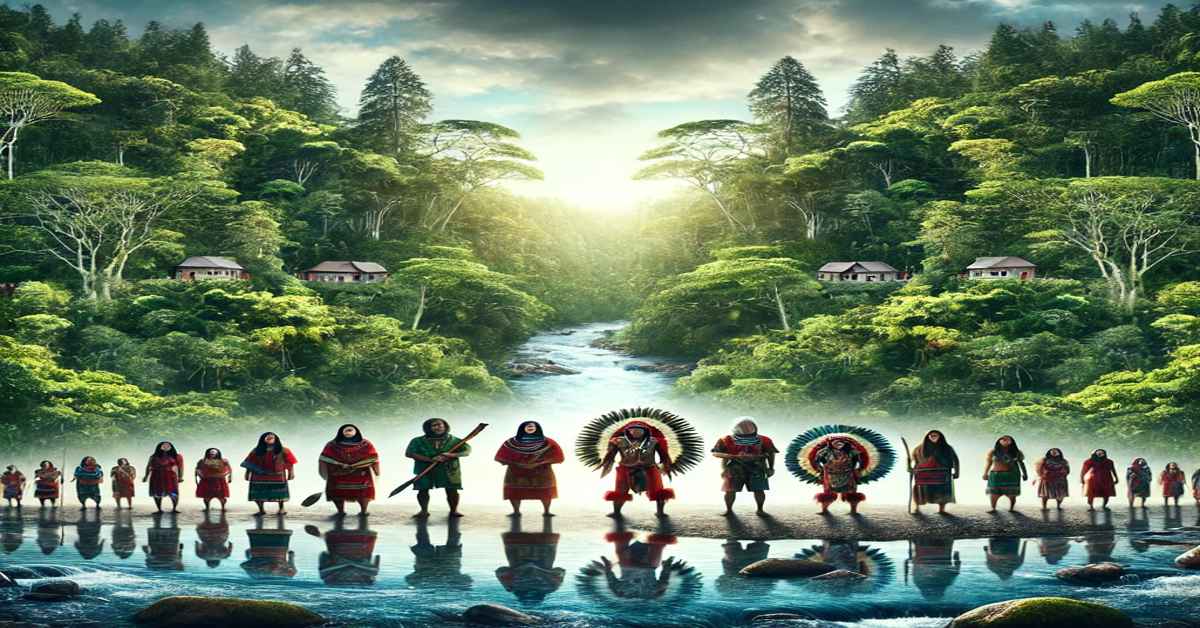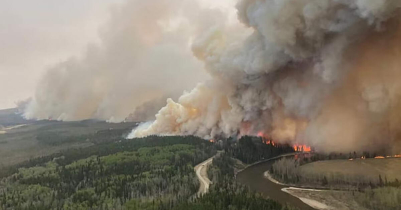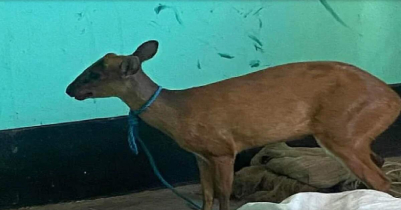Hasanat Kamal
Update: 21:23, 19 February 2025
The Untold Stories: Indigenous Rights, Climate, and Social Justice

Indigenous communities stand resilient in their natural environment, advocating for climate justice
The indigenous communities across the world are the frontline guardians of nature, holding centuries of wisdom on environmental conservation, climate resilience, and sustainable living. However, their lands, rights, and voices have been systematically marginalized due to industrial expansion, deforestation, and climate change. The struggle for indigenous rights is not just a battle for cultural preservation—it is a fight for climate justice, environmental sustainability, and global social equity.
Despite their significant contributions to biodiversity and ecological stability, indigenous communities face displacement, human rights violations, and exclusion from global policy-making. This article sheds light on these untold stories, illustrating why indigenous rights are a critical element of climate action and social justice.
Indigenous Knowledge and Climate Solutions
Indigenous peoples have safeguarded the planet’s forests, rivers, and natural resources for generations. Their traditional knowledge is crucial for climate resilience, yet it remains undervalued in mainstream environmental policies. Indigenous farming, forestry, and water management techniques offer sustainable solutions that can help combat climate change.
Case Study: Amazon Rainforest and Indigenous Resistance
The Amazon rainforest, home to approximately 1 million indigenous people from more than 400 tribes, is under extreme threat from illegal deforestation and mining. Indigenous groups like the Kayapo, Yanomami, and Munduruku have long fought against corporate and governmental land encroachments. The destruction of the Amazon not only displaces indigenous communities but also accelerates global warming, as the rainforest plays a crucial role in carbon absorption.
Indigenous leaders such as Raoni Metuktire and Nemonte Nenquimo have become global icons, advocating for indigenous land rights and environmental justice. In 2020, Nenquimo, an indigenous Waorani leader from Ecuador, won a historic court ruling preventing oil drilling in over 500,000 acres of Amazon land.
The Role of Indigenous Knowledge in Biodiversity Conservation
Traditional indigenous practices such as agroforestry, rotational farming, and controlled burning contribute to ecosystem stability and soil fertility. Indigenous-led conservation efforts have proven to be more effective than conventional conservation models. According to a 2021 UN report, regions managed by indigenous communities have higher biodiversity and lower deforestation rates than government-protected areas.
For example, in Australia, Aboriginal communities have used cultural burning practices for thousands of years to prevent wildfires. Scientific studies now recognize these traditional techniques as highly effective in reducing fire intensity.
Challenges to Indigenous Land and Human Rights
Despite international legal frameworks, indigenous communities face ongoing threats from land grabs, deforestation, and violence. Governments and multinational corporations frequently exploit indigenous territories for mining, logging, and large-scale agriculture without proper consultation.
Case Study: Canada’s Indigenous Land Struggles
In Canada, First Nations communities have been at the center of land disputes involving oil pipelines, such as the Coastal GasLink pipeline project in British Columbia. Indigenous groups, including the Wet’suwet’en people, have opposed pipeline construction on their ancestral lands, citing threats to water resources and cultural heritage. In response, authorities have used force to remove land defenders, sparking national and international outrage.
Social Justice and Indigenous Empowerment
Ensuring indigenous rights is a fundamental aspect of social justice. Empowering indigenous communities through legal recognition, economic support, and self-governance is crucial for a more just and sustainable world.
Success Story: The Maasai People’s Land Rights in East Africa
The Maasai, an indigenous community in Kenya and Tanzania, have historically been displaced due to land privatization and tourism expansion. However, in recent years, Maasai activists have fought legal battles to reclaim their ancestral lands. By leveraging ecotourism, they have successfully generated revenue while preserving their cultural traditions and protecting biodiversity.
International Efforts and Legal Protections
Several international agreements acknowledge indigenous rights, but enforcement remains inconsistent. The United Nations Declaration on the Rights of Indigenous Peoples (UNDRIP), adopted in 2007, sets the global standard for indigenous self-determination. However, many governments fail to implement these protections effectively.
Key International Treaties and Agreements:
-
UNDRIP (2007): Establishes indigenous rights to land, resources, and self-determination.
-
ILO Convention No. 169: Recognizes indigenous land rights and prohibits forced displacement.
-
Paris Agreement (2015): Recognizes the role of indigenous knowledge in climate mitigation.
-
How You Can Support Indigenous Rights and Climate Justice
-
Individuals, organizations, and policymakers can take actionable steps to support indigenous communities. Here are some ways to contribute:
1. Support Indigenous-Led Organizations
Many indigenous groups and advocacy organizations work tirelessly to protect land rights and cultural heritage. Consider supporting groups like:
-
Amazon Watch (Protecting indigenous lands in the Amazon)
-
Cultural Survival (Advocating for indigenous rights worldwide)
-
First Peoples Worldwide (Supporting indigenous economic development)
2. Educate Yourself and Spread Awareness
Learn more about indigenous struggles by following indigenous activists, reading indigenous literature, and watching documentaries such as:
-
The Condor & The Eagle (Exploring indigenous-led environmental activism)
-
We Will Stand Up (Highlighting indigenous justice in Canada)
3. Advocate for Stronger Policies
Encourage governments and corporations to uphold indigenous rights by:
-
Supporting legislation that recognizes indigenous land ownership
-
Holding corporations accountable for environmental destruction
-
Promoting ethical and sustainable business practices
4. Buy Ethically Sourced Products
Support indigenous communities by purchasing fair-trade and locally made products. Avoid products linked to deforestation, land grabs, or human rights violations.
The untold stories of indigenous resilience and environmental stewardship deserve global recognition. Indigenous communities are not only the victims of climate change but also the solution bearers. Protecting their rights is essential for a sustainable, just, and equitable world.
By amplifying indigenous voices, enforcing legal protections, and fostering global solidarity, we can ensure that these vital stories are no longer ignored but celebrated as part of the movement for climate justice and social equity.


























